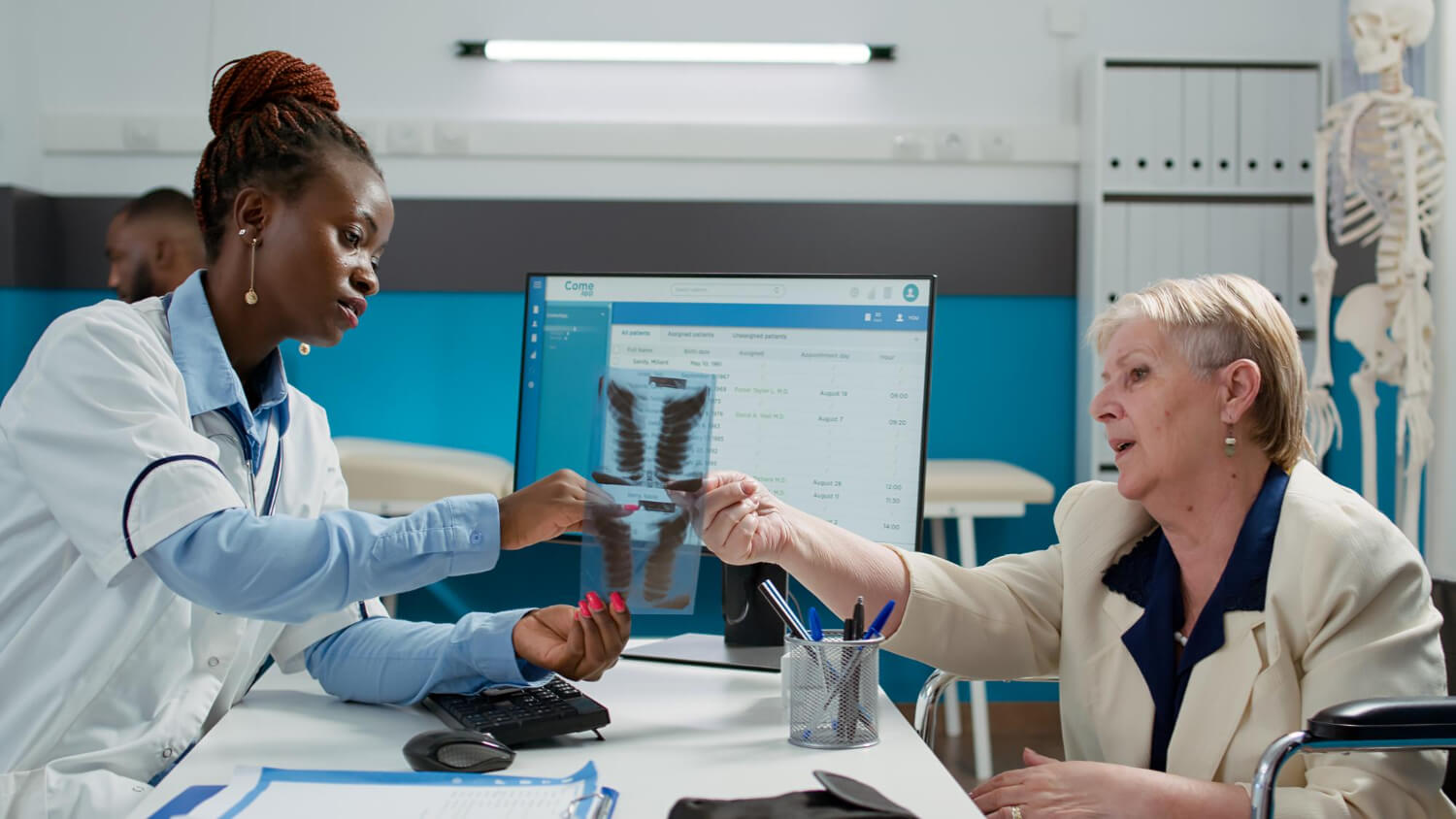

December 15, 2022
In recent years, there has been a growing trend towards custom healthcare solutions. This approach is in contrast to the traditional “one size fits all” approach, which often fails to take into account the unique circumstances of each patient. In order to build a treatment plan that is specific to the patient, a team of professionals typically develops custom health services. This approach is often used in cases where the patient has a rare condition or is unresponsive to standard treatments. In many cases, custom healthcare solutions have been shown to be more effective than standard treatments, and they are also often less expensive. As a result, custom healthcare solutions are gaining popularity as an alternative to standard medical care.
Customized health care is a rapidly growing industry that is making an impact in a variety of ways.
The ability to develop individualized treatment programs for each patient is one of the most intriguing features of specialized healthcare. This means that while creating a treatment plan, clinicians can take into consideration a patient’s particular genetic make-up, way of life, and medical history. As a result, patients are more likely to receive treatments that are specifically tailored to their needs, which can lead to better outcomes.
Customized health care can also help to improve access to care. By partnering with community organizations and using technology, customized health care providers are able to reach patients who might not otherwise have access to quality care.
Another benefit of customized health care is that it can help to increase efficiency within the healthcare system. By streamlining processes and using data analytics, customized health care providers are able to reduce waste and improve the overall quality of care.
Additionally, customized healthcare increases patient involvement. Patients are more likely to comply with their treatments and adhere to their doctors’ recommendations when they feel invested in their own care and have a voice in their treatment plans.
Ultimately, the goal of customized health care is to improve patient outcomes. By providing individualized care and using data-driven decision-making, customized health care providers are able to deliver better results for their patients.
When it comes to orthopedic care, one size does not fit all. Every patient is different, and therefore each individual’s orthopedic needs will be unique. This is where custom healthcare solutions come in. By working closely with a team of experts, patients can create a treatment plan that is tailored to their specific condition and goals.
In addition, custom healthcare solutions can help to reduce the risk of complications and ensure that the patient receives the most effective care possible. As a result, custom healthcare solutions offer a number of advantages for both patients and orthopedic providers.
Custom healthcare solutions are designed to meet the specific needs of each patient. Orthopedic surgeons and other healthcare providers can use custom solutions to improve patient outcomes and reduce complications.
Custom healthcare solutions can assist lower healthcare expenditures in addition to enhancing patient outcomes. By using custom solutions, orthopedic surgeons can avoid the need for revision surgery. Revision surgeries are costly and often cause complications for patients.
In some cases, they may even require more extensive treatments, such as rehabilitation or physical therapy. By using custom solutions to avoid revision surgery, orthopedic surgeons can help to reduce healthcare costs and improve the overall quality of care for their patients.

There are a variety of factors to consider when choosing an orthopedic EMR system. One important factor is whether the system is certified by the Orthopedic Electronic Medical Record Certification Commission (OEMRCC). This certification ensures that the system meets certain standards for safety and efficacy. Additionally, it is important to consider the user-friendliness of the system.
A good orthopedic EMR should be easy to use and allow orthopedists to quickly and easily document patient visits. Other important factors to consider include the system’s ability to generate reports, its interoperability with other systems, and its price. By taking all of these factors into account, orthopedists can choose an EMR system that best meets their needs.
When considering a custom solution for orthopedics, there are a few key features to look for in a Clinical Decision Support System (CDSS). First, the CDSS should be able to integrate with your existing electronic health record (EHR) system. This will allow you to seamlessly share patient data between the two systems, which can help to improve the accuracy of diagnosis and treatment recommendations.
Second, a broad range of clinical decision support tools based on evidence should be provided by the CDSS. These tools can include alerts, order sets, and clinical pathways. They ought to be adaptable to your particular therapeutic setting’s requirements.
Finally, the CDSS should have a robust reporting system that allows you to track the performance of the system and its impact on patient outcomes. By considering these key features, you can ensure that you select a CDSS that will best meets the needs of your orthopedic practice.
When considering a custom solution for orthopedics, there are a few key features to keep in mind. First, the imaging capabilities of the platform should be able to meet the specific needs of your clinic or hospital. Whether you require X-ray, MRI, or CT scanning, it is important to make sure that the platform you select can provide the high-quality images you need.
Furthermore, the orthopedic modelling capabilities of the platform should be able to create accurate models of bones and joints. This is essential for planning surgeries and developing treatment plans.
Moreover, it is important to select a platform that is easy to use and intuitiive. Orthopedic surgeons and staff should be able to quickly learn how to use the software with minimal training. You can choose an orthopedics solution specially designed to your clinic’s or hospital’s requirements by keeping these elements in mind.
When it comes to choosing a custom solution for orthopedic billing, there are a few key features to keep in mind. First, the system should be automated as much as possible. This will help to improve efficiency and reduce errors. Second, the system should be able to handle a high volume of claims. This is important because orthopedic billing can be very complex and time-consuming.
Finally, the system should be flexible and easy to use. This is significant since every orthopedic practice is different and has distinct requirements.
In order to provide the best possible care for patients, it is important to consider a number of key features when choosing a custom solution for orthopedics. One of the most important features is easy appointment scheduling. This feature allows patients to schedule appointments quickly and easily, without having to wait for a printer or fax machine.
Additionally, easy appointment scheduling helps to ensure that patients are seen in a timely manner. Another important feature is the ability to customize forms and documents. This feature allows orthopedic surgeons to tailor forms and documents to meet the specific needs of their patients.
First and foremost, the software should be easy to use. It should be intuitive and user-friendly, so that even those with no prior experience will be able to quickly learn how to use it. The software should be designed specifically for orthopedics, so that it includes all of the features and functionality that are relevant to this field. Finally, the software should be flexible and scalable, so that it can grow with the needs of your practice. By taking these factors into account, you can be sure to choose a custom healthcare solution that will perfectly meet the needs of your orthopedic practice.
When it comes to choosing the right custom healthcare solution for your orthopedic practice, there are a few key features that you should look out for. These include intuitive user-friendliness, field-specific functionality, and scalability.By keeping these considerations in mind when selecting a software solution, you can be sure to find one that is tailored perfectly to your needs. With the right healthcare solution in place, you’ll be well on your way to creating an efficient and successful practice.
Xeven Solutions provides custom healthcare solution for all niches. They can be modified to meet your needs, and extra features can be added. If you are looking for a custom healthcare solution look no further than Xeven Solutions.